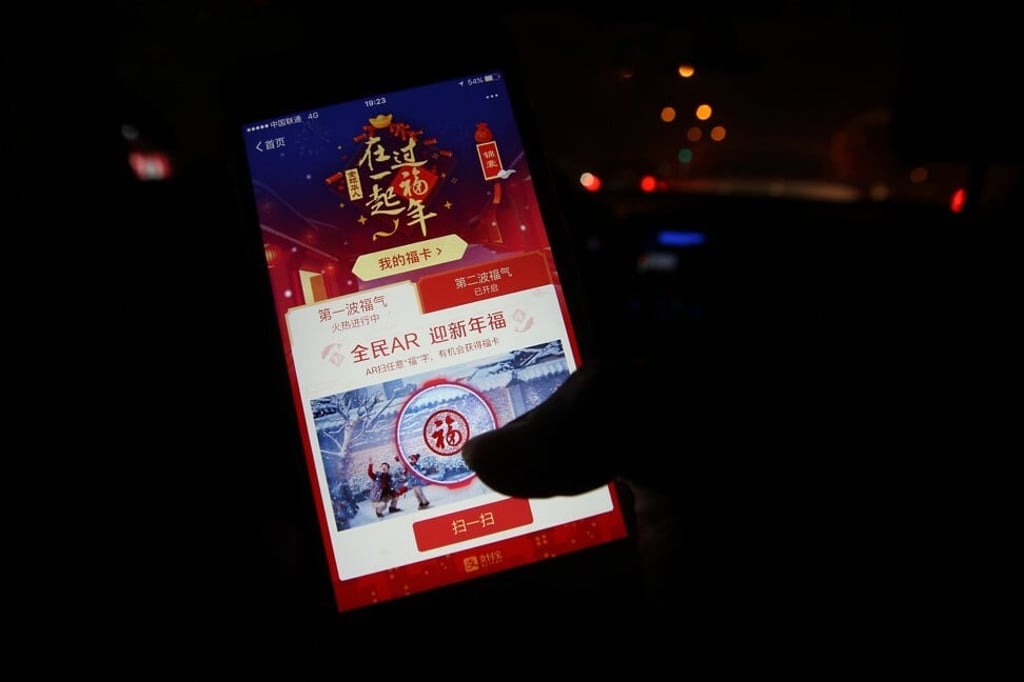Advertisement
Why China’s Spring Festival Gala is a major promotions vehicle for Big Tech firms
- The annual CCTV show’s vast audience – more than 1.2 billion last year – makes it an ideal platform for Big Tech companies to attract new users
- ByteDance-owned short video app operator Douyin gave away US$186 million worth of digital red packets during this year’s show
Reading Time:4 minutes
Why you can trust SCMP

The annual Spring Festival Gala of state broadcaster China Central Television (CCTV) is a glitzy show mainly known for a wide variety of fun and tacky performances enjoyed by families across the country.
In recent years, this CCTV production – the world’s most-watched national network TV broadcast, according to Guinness World Records – has also become a must-see show because of the large-scale promotions by China’s major technology companies.
The show’s vast audience makes it the ideal platform for Big Tech firms to launch campaigns centred on giving away massive amounts of hongbao – the traditional red packet containing cash and given as a gift – in digital form to further engage its users and attract new consumers.
Advertisement
“The Spring Festival Gala is the Chinese version of the Super Bowl for advertisers, and has a similar trophy status in many ways,” said Mark Tanner, managing director at marketing company China Skinny. “For the digital platforms in particular, it’s one of the most effective ways to reach those in lower-tier cities and older people, who have been slower to engage online.”

Advertisement
Advertisement
Select Voice
Choose your listening speed
Get through articles 2x faster
1.25x
250 WPM
Slow
Average
Fast
1.25x